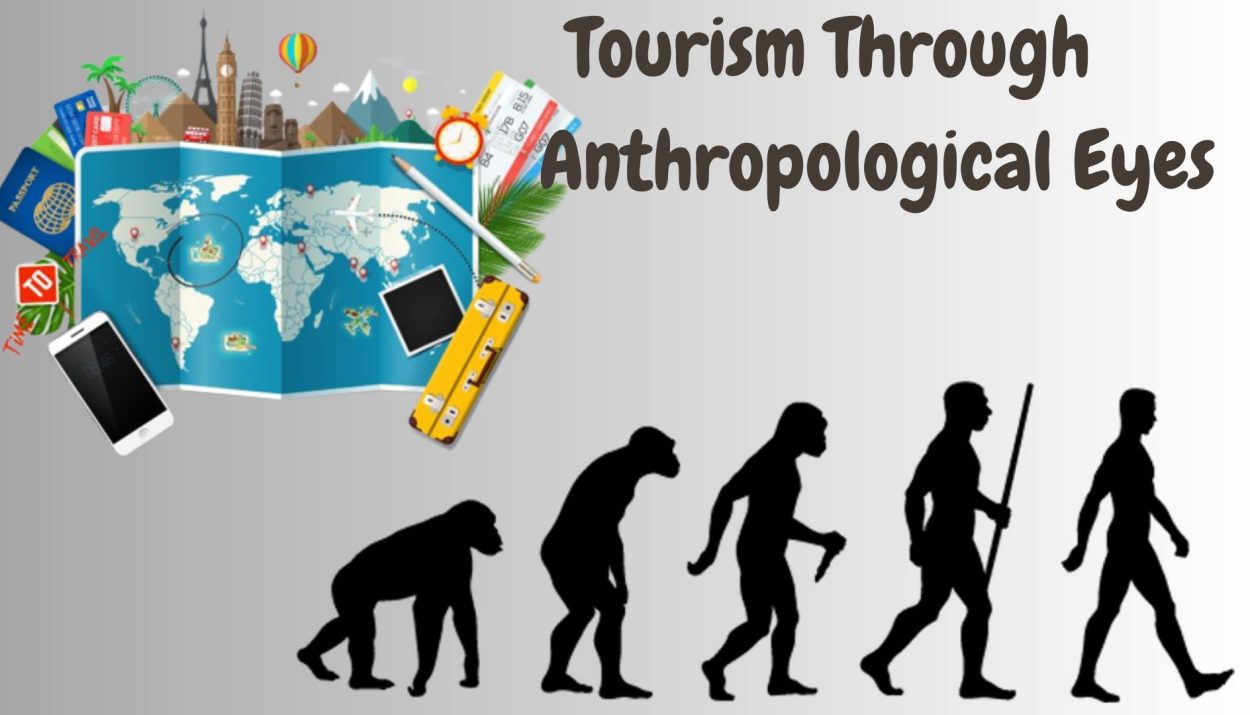Tourism has evolved into a global phenomenon, capturing the imaginations of millions of people seeking adventure, relaxation, and cultural immersion. However, behind the glossy brochures and stunning photographs lies a complex and multidimensional social phenomenon. Exploring the anthropology of tourism unveils a captivating lens through which we can examine the intricate interplay between travellers and host communities, shedding light on the profound impacts on culture, identity, and social dynamics.
What is Tourism?
Tourism encompasses more than mere travel; it entails engaging in specific activities and exploring various sights. There are diverse ways to define tourism, leading to the development of tourism theories. These theories emerge from disciplines such as the anthropology of tourism and interdisciplinary approaches. Moreover, tourism involves distinct attitudes, motivations, habits, and similar aspects, which have been studied and classified by approaches like structural-functionalism. The aim is to establish typologies and classifications that form the basis for creating theories to comprehend these various attitudes, motivations, goals and related aspects.
Tourism does not originate from the actions of individual tourists; rather, it is a sociological creation that emerges through a complex interplay of various structures, social processes, political economies, institutions, and societal dynamics. Tourists themselves are not the cause of tourism; instead, their behaviours and the concept of tourism itself are outcomes influenced by these broader sociological factors.
The identity and actions of tourists have consistently been subject to ideological conceptualization. There is no viewpoint external to this ideological perspective that defines tourism, which is a crucial consideration for anthropologists as we endeavour to understand and study tourism. It poses a significant challenge for us to navigate and determine the approach to studying tourism due to this inherent ideological framing.
Culture and Tourism
Culture serves as the foundation upon which tourism experiences are built. Every destination possesses a unique cultural heritage, comprising customs, traditions, rituals, art, and architecture. Tourists seek authentic encounters, striving to immerse themselves in the local culture, traditions, and ways of life. By examining the cultural dimensions of tourism, anthropologists can shed light on the interactions between tourists and host communities, the commodification of culture, and the impacts of tourism on local traditions and identities. However, the commodification of culture can sometimes lead to the dilution or distortion of local practices, as they are packaged and presented to cater to tourist expectations.
Tourism often involves encounters between tourists, who bring their own cultural baggage and expectations, and host communities, who have their own cultural traditions and ways of life. These encounters can lead to cultural exchange, adaptation, and sometimes conflicts or misunderstandings. Understanding the role of host-guest relationships becomes crucial in evaluating the social and economic implications of tourism on communities, including issues of authenticity, exploitation, and cultural appropriation.
Tourism provides a unique context for the exploration and negotiation of identities. As individuals embark on journeys to unfamiliar territories, they often find themselves in spaces where preconceived notions of self are challenged and reshaped. Additionally, for host communities, tourism may bring about changes in their own perceptions of identity as they navigate between preserving their cultural distinctiveness and adapting to the expectations and desires of tourists.
Tourism can have both positive and negative effects on local traditions, identities, and ways of life. Tourism brings issues such as the erosion of traditional livelihoods, the commodification of indigenous knowledge and artefacts, and the negotiation of cultural identity in the face of tourist demands.
Community-centred tourism
Community-centred tourism, also known as community-based tourism or community tourism, is an approach to tourism that places the local community at the heart of the tourism experience. It emphasizes the active participation and empowerment of the community in the planning, development, and management of tourism initiatives. This model seeks to ensure that the benefits of tourism are distributed more equitably among community members while respecting and preserving their cultural and natural heritage.
Community-centred tourism is rooted in the principles of sustainable development and cultural preservation. It aims to foster a sense of ownership and pride among community members, enabling them to showcase their cultural traditions, natural resources, and ways of life to visitors. Instead of being passive recipients of tourism, the community becomes actively involved in decision-making processes, tourism operations, and the interpretation of their cultural and natural assets.
Governments have the ability to ensure that tourism is controlled by local corporations and businesses, rather than large multinational entities. It is crucial to establish mechanisms that require these local entities to pay their fair share of taxes, thereby discouraging the use of tax havens frequently employed by multinational corporations. To promote sustainable and inclusive tourism, governments can provide support to cooperatives, social enterprises, and non-profit organizations. Furthermore, involving the local public in all tourism-related planning and decision-making processes is essential to ensure their input is considered and incorporated.
The influx of tourists can generate economic opportunities, employment, and infrastructural development in host communities. However, it can also lead to increased social inequality, environmental degradation, and the loss of cultural heritage.
Based on the research study, global tourism contributed approximately eight per cent of the total greenhouse gas emissions worldwide between 2009 and 2013. It is noteworthy that the majority of this environmental impact is attributed to individuals originating from high-income countries.
Conclusion
The anthropology of tourism offers a fascinating lens through which to understand the intricate dynamics of travel, culture, and identity. By delving into the experiences and interactions of both tourists and host communities, anthropology unravels the complexities of this global phenomenon. As we continue to navigate an increasingly interconnected world, the anthropology of tourism becomes ever more relevant, providing valuable insights for policymakers, practitioners, and travellers themselves, fostering a deeper appreciation for the diverse and vibrant tapestry of human experiences.
References
Anthropology and Tourism: Past Contributions and Future Theoretical Challenges
Anthropology of tourism: practical and theoretical development in China
